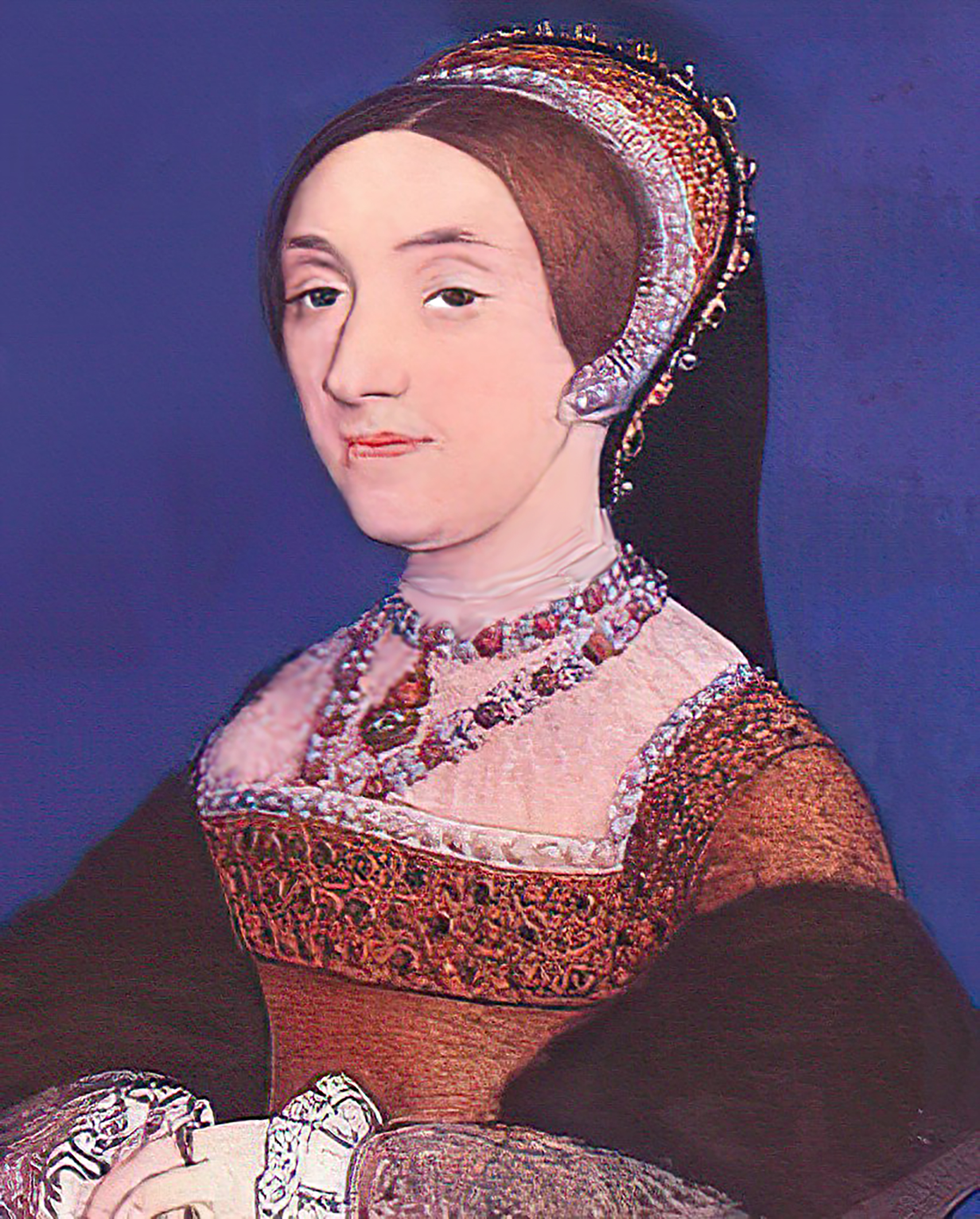

Tudor enthusiasts greeted the news of Lucy Worsley's new BBC documentary about the six wives of Henry VIII with excitement. For those of us fascinated by the Tudor period, we cannot get enough of it; we read about it, we watch documentaries about it, we visit the buildings associated with it and, perhaps most of all, we love to talk about it. Admittedly, Henry's tumultuous marriages is a well-worn subject, but the enthusiastic Worsley promised to offer new insights and, for me at least, she has done so in what is, admittedly, a challenging medium: television.
However, not everyone reacted as positively to Worsley's documentary as others. Last week, an article was published in The Guardian entitled: 'Six Wives With Lucy Worsley: Why TV History Shows are for the Chop', and was written by Joel Golby. In it, he attacked Worsley's documentary as 'awful, tedious history' and 'Game of Thrones without any of the good bits', a rather absurd criticism that, nonetheless, exposes the difficulty that historians face in attempting to strike a balance between education and entertainment, when presenting TV documentaries. In one hour, Worsley was required to discuss and examine Henry's 24-year long marriage to Katherine of Aragon, her experiences of queenship and Anne Boleyn's rise to power, in a way that was both credible and engaging to viewers. Golby's scathing assessment indicates that she failed.
Others voiced their criticism of another Tudor documentary on Twitter and in the comments section of the article, although some commentators were rather more positive. One praised Worsley's coverage of 'one of the most fascinating eras.' But Golby's negativity was mirrored in another article published in History Today on 14 December by the magazine's editor, Paul Lay. The title of the piece is 'Television History and Its Discontents', and featured a still from Worsley's documentary, in which she wears Tudor costume.
Lay criticised Six Wives, for he suggested that it offered 'unconvincing, cheap looking, historical reconstructions', and because it 'says nothing that we do not know already.' I object wholeheartedly to Lay's criticism, which I believe to be both unfair and untrue. The documentary does offer new insights, and as a biographer of Katherine Howard, I wholeheartedly commend Worsley's decision to present Henry VIII's hapless fifth wife as a victim of predatory behaviour, a view that has only gained acceptance amongst historians in the last decade or so.
Before then, Katherine Howard tended to be perceived as, in Alison Weir's words, 'an empty-headed wanton', or even, to use the late David Loades's term, 'a stupid slut'. She has been derided for her 'promiscuity' and has been slated as a 'natural born tart' (Alison Plowden). Television documentaries and dramas tended to follow these interpretations: Tamzin Merchant presented Katherine as a nymphomaniac, even a prostitute, in the Showtime television series The Tudors, and even in Dr David Starkey's entertaining documentary about the six wives, Katherine was said to have shown more dignity at her death than she had ever displayed in life. An earlier documentary about the six wives produced this year also focused on Katherine as sexually adventurous both before and after her marriage.
To my knowledge, Worsley is the first to present Katherine as an abused victim in a television documentary. In doing so, she has drawn on the theories of historians such as Retha Warnicke and Joanna Denny to offer a compelling, and more historically accurate, version of Katherine's life than previously seen ever before on television. From this perspective, Lay's criticism is absurd.
It is true that there is an abundance of documentaries about Henry VIII and his wives, but is that really a bad thing? Many people are fascinated by the king and his queens, and read as many books as they can about them, as well as flocking to Hampton Court Palace, the Tower of London and Windsor Castle every year, as well as to the numerous National Trust and English Heritage owned properties. I object to criticisms of new documentaries about the Tudors and, in particular, Henry VIII - for contrary to these views, such documentaries are offering new insights and are aimed at audiences who will appreciate these insights, because they are intelligent and engaged viewers who want to learn as much as they can about the period.
Perhaps, if the likes of Golby and Lay view such documentaries as redundant, because they offer 'nothing that we do not know already', then they should not watch them, since there are many who will watch them and will learn something new. If either individual can point me towards an older documentary that portrays Katherine Howard as a victim of sexual predators, then I might rethink my views. But until they can, I stand by why I argue in this piece: that even well-trodden subjects can offer something new, which can be documented on television in a manner that is both educational and entertaining.
I agree with you on every point. There are always new interpretations, new shades of meaning, and new understandings to be uncovered. I was delighted by Worsley's documentary, and I welcome more.
ReplyDelete